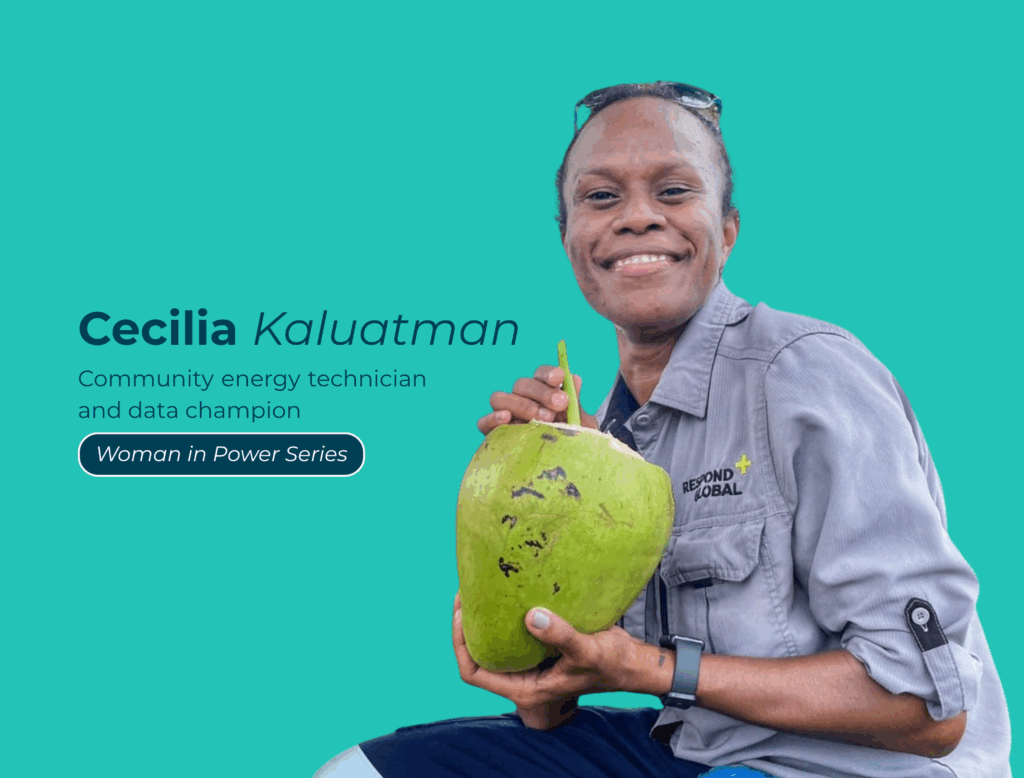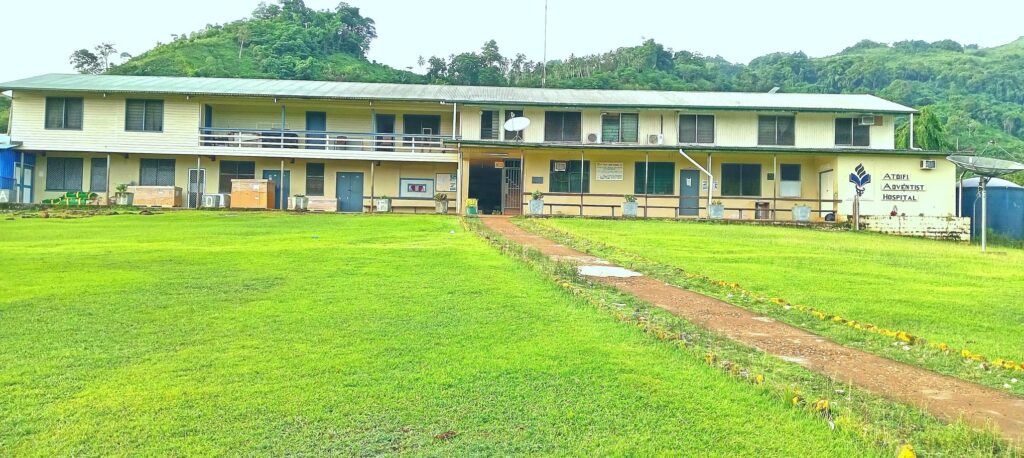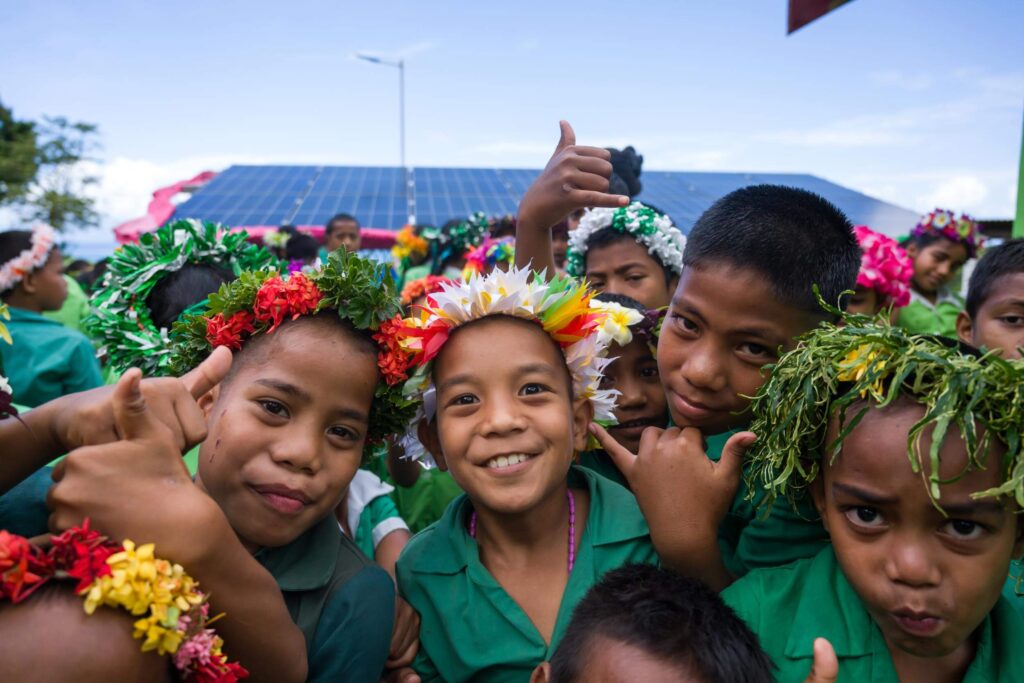As part of our Women in Power series, we are celebrating the remarkable leaders driving the Pacific and Timor-Leste’s clean energy transition.
In the remote islands of Vanuatu, communities once depended on kerosene lamps, with daily life slowing as soon as darkness fell. Now, solar power is transforming how people live and work, thanks in part to Cecilia Kaluatman, a 31-year-old Data Officer onboard Respond Global’s game-changing marine logistics platform, HELPR-1.
Cecilia’s journey began in the world of information technology. After studying software and networking in Vanuatu, she spent four years travelling to remote islands installing satellite networks to connect schools and villages to the internet. “Most of the places didn’t have any network,” she recalls. “We would install VSATs and set up vouchers so people could have access to the internet for the first time.”
That experience taught her about technology as well as the resilience and resourcefulness of island communities. When she joined Respond Global in 2023, she found herself at the intersection of data, technology and human impact. “I started as an IT technician but then I began collecting data and supporting the solar installation team,” she explains. “Now I lead our streetlight portfolio and manage data for our community energy projects.”
Respond Global is currently delivering a REnew Pacific project, supported by the Vanuatu National Green Energy Fund (NGEF), that is bringing reliable power to 40 health facilities across Vanuatu, improving healthcare for around 80,000 people living in off-grid communities. Cecilia is part of the team installing 20 new off-grid solar systems and refurbishing 20 more through Respond Global’s HELPR-1 vessel, providing 24/7 electricity to some of the country’s most remote islands for the first time. The project is also supplying medical equipment and cold-chain refrigeration, helping health centres safely store vaccines and support night-time emergencies and maternity care.
Cecilia’s days are spent gathering and analysing information from across Vanuatu’s provinces. Each month, her team travels to a new island to assess health centres, schools and community facilities, documenting energy access, identifying faults and planning upgrades. “We check if the solar systems are working, if they need replacement or refurbishment. When we’re on site, we sometimes help with the installation or repairs,” she says, adding: “We sometimes do installations on the spot when we have extra components with us – it’s something that really helps us respond quickly to community needs.”
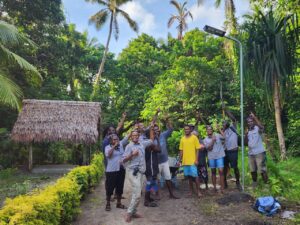
Her favourite part of the job, she says, is seeing the change unfold. “When we install solar streetlights near water catchments or pathways, women tell us they feel safe walking at night. At health centres, staff can deliver babies with light for the first time. Seeing that makes me happy. It’s life changing for them – and for me too.”
But the path hasn’t been without challenges. “At first it was hard,” she admits. “I was the only woman on site, and the boys didn’t think I could do it. But I kept showing up. I learned from them, worked alongside them, and now I’ve earned their trust. I’ve learned that when you believe in yourself, you can do anything.”
Cecilia’s family, based on Efate, have been her constant supporters. “They’re always my biggest fans,” she says with a smile. “They message me every time they see a post about my work – they even take screenshots and send them back, saying how proud they are.”
She has high praise for her Respond Global team too: “I wouldn’t have done any of this without all my team’s help and support. Their encouragement and collaboration have made everything possible.”
Her curiosity and commitment to learning haven’t stopped at work. Cecilia is currently studying off-grid solar installation at the University of the South Pacific, building on her technical background to strengthen her renewable energy expertise. “Coming to Respond Global has given me new skills,” she says. “I’ve learned about electricity, wiring, safety and installation: things I never thought I’d do.”
She’s also thinking ahead. “In the future, I want to keep helping communities – especially women, children and people with disabilities – to have better lives,” she says. “Maybe one day I can start my own business to keep supporting solar projects and create more opportunities for others.”
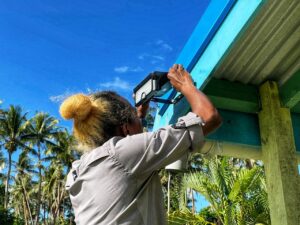
For Cecilia, renewable energy is about much more than infrastructure, it’s about dignity, safety and connection. “Some communities still don’t have water or safe roads,” she explains. “Women and children walk long distances, even at night, to fetch water or go to school. Having light means they can move safely. It changes everything.”
Her message to young women thinking of following a similar path is powerful:
“Don’t wait for permission. Speak up. Ask questions. Believe in yourself. You can achieve whatever you want if you stay focused and find ways to help your community.”
She also has a call for those investing in energy access across the Pacific. “We are lucky to have light in some places but many still don’t. Donors and organisations can help communities with better roads, water and solar systems. These things make a big difference for women and children.”
Cecilia’s story is one of persistence and progress. In a field long dominated by men, she’s showing how data and solar energy can create practical pathways for equality by improving access to power and opportunities for women across Vanuatu.
“It’s challenging,” she says, “but the challenge is worth it. Every light we install helps someone feel safer, study longer, or save a life. That’s what keeps me going.”
Cecilia’s story is part of the broader project that is powering remote health centres across Vanuatu. Learn more.
Across the region, women are stepping into roles that are reshaping how energy is generated, managed and shared. Their leadership is not only powering homes, schools and businesses with clean energy, it is building stronger, more resilient communities and showing what an inclusive energy future looks like.
We’re proud to showcase some of these remarkable leaders through our Women in Power series, which highlights women powering change through REnew Pacific and its earlier pilots, delivered by the Business Partnerships Platform.
They are supported by the Pacific Climate Infrastructure Financing Partnership (PCIFP), a $350 million Australian Government initiative delivered by the Australian Infrastructure Financing Facility for the Pacific (AIFFP).

